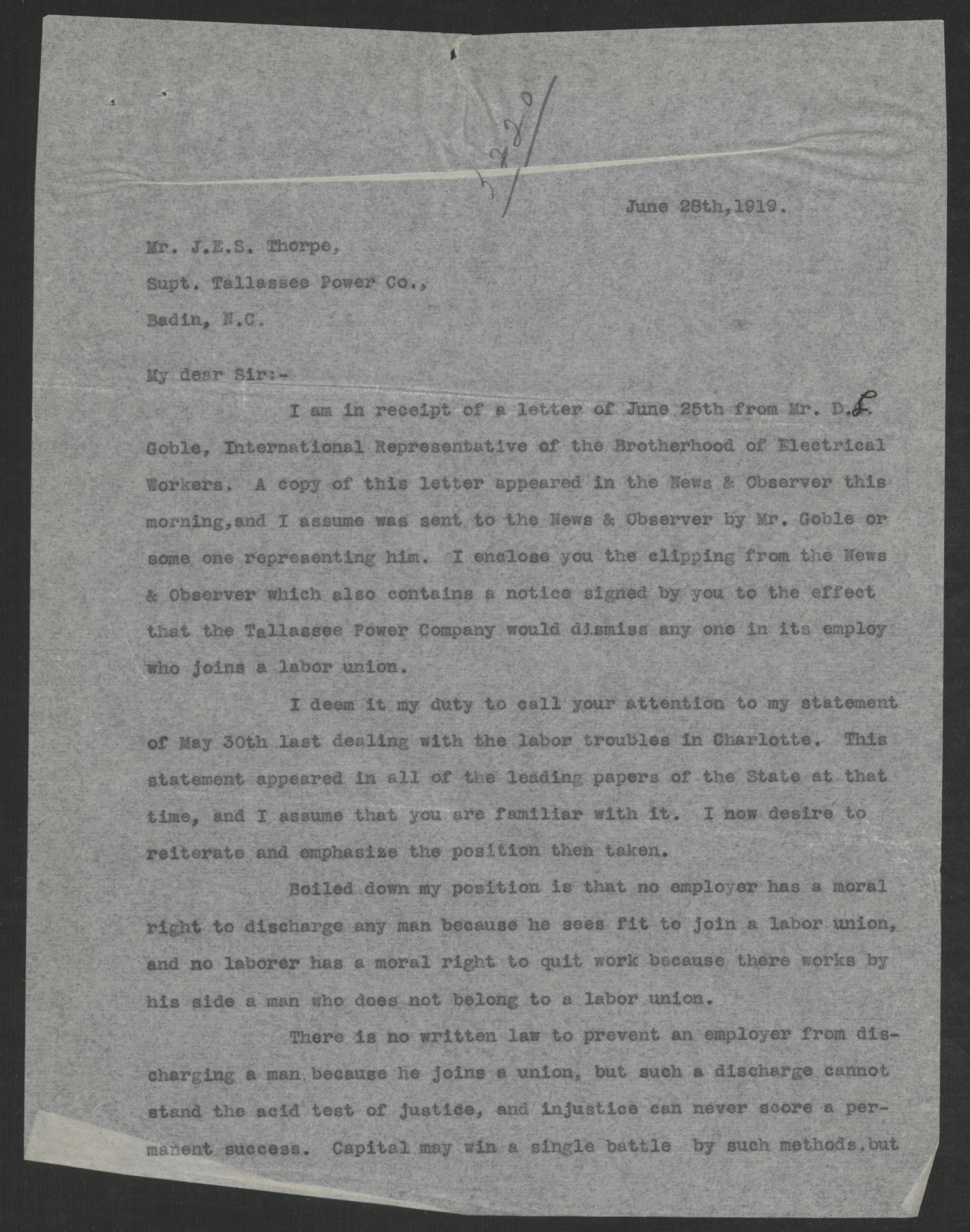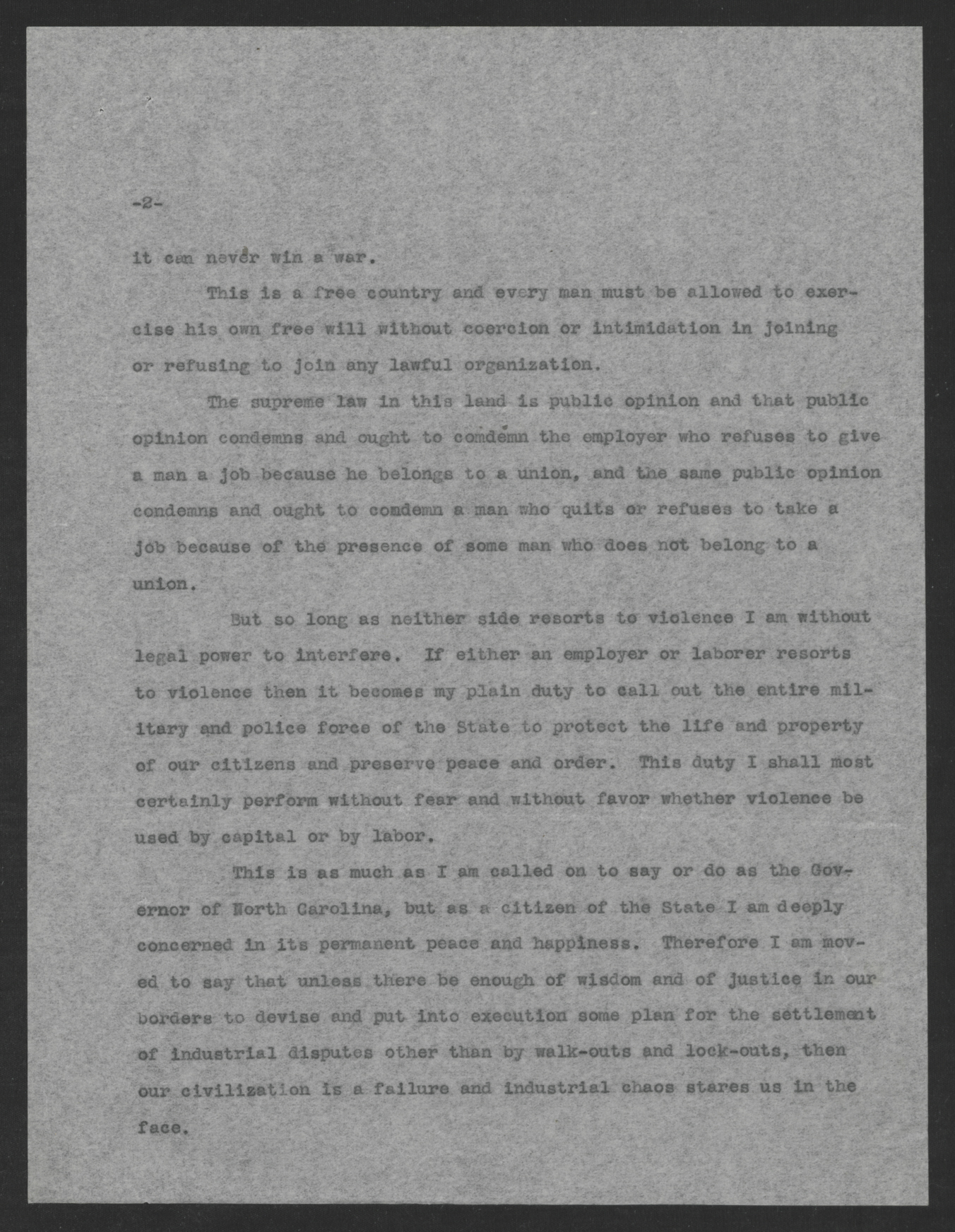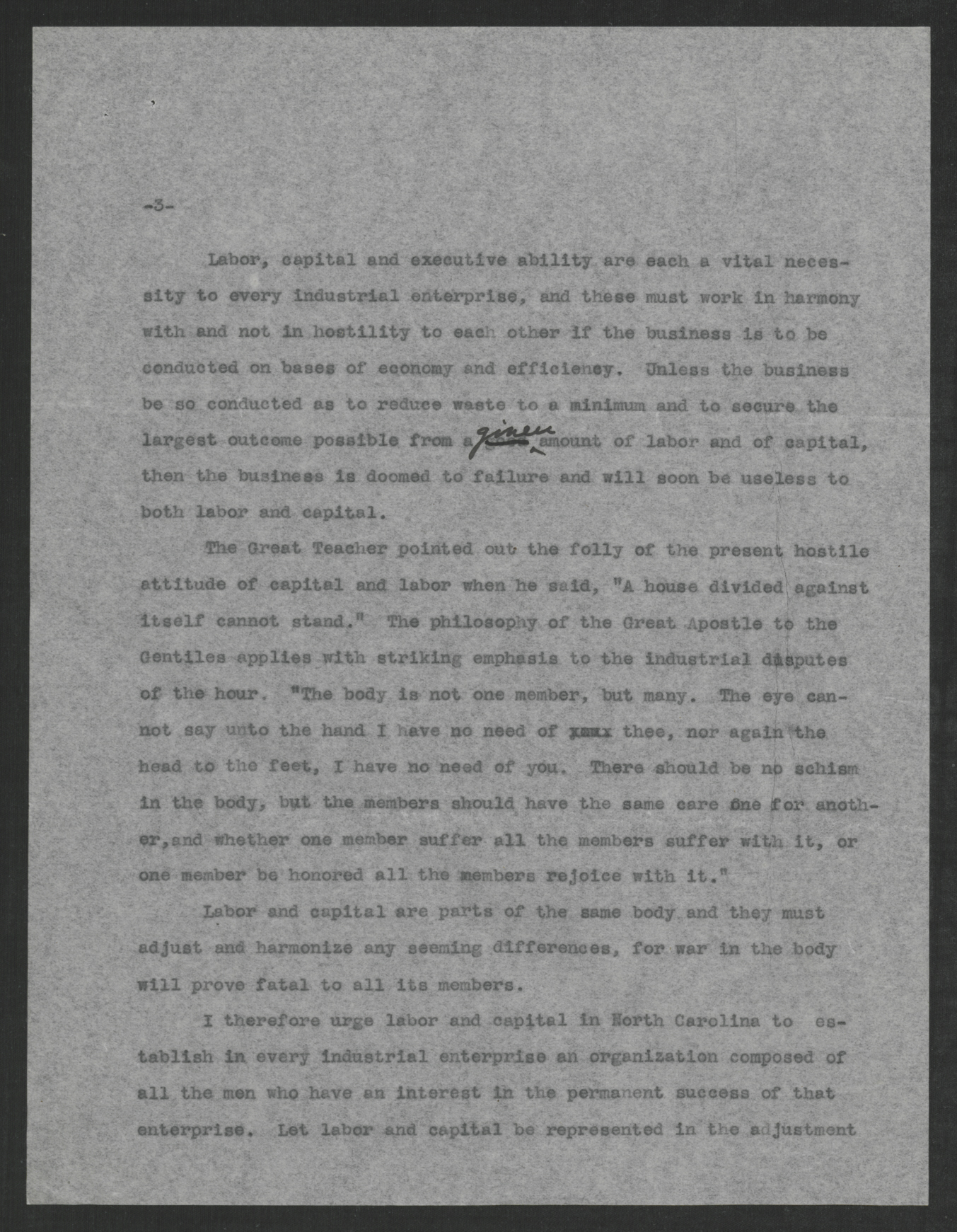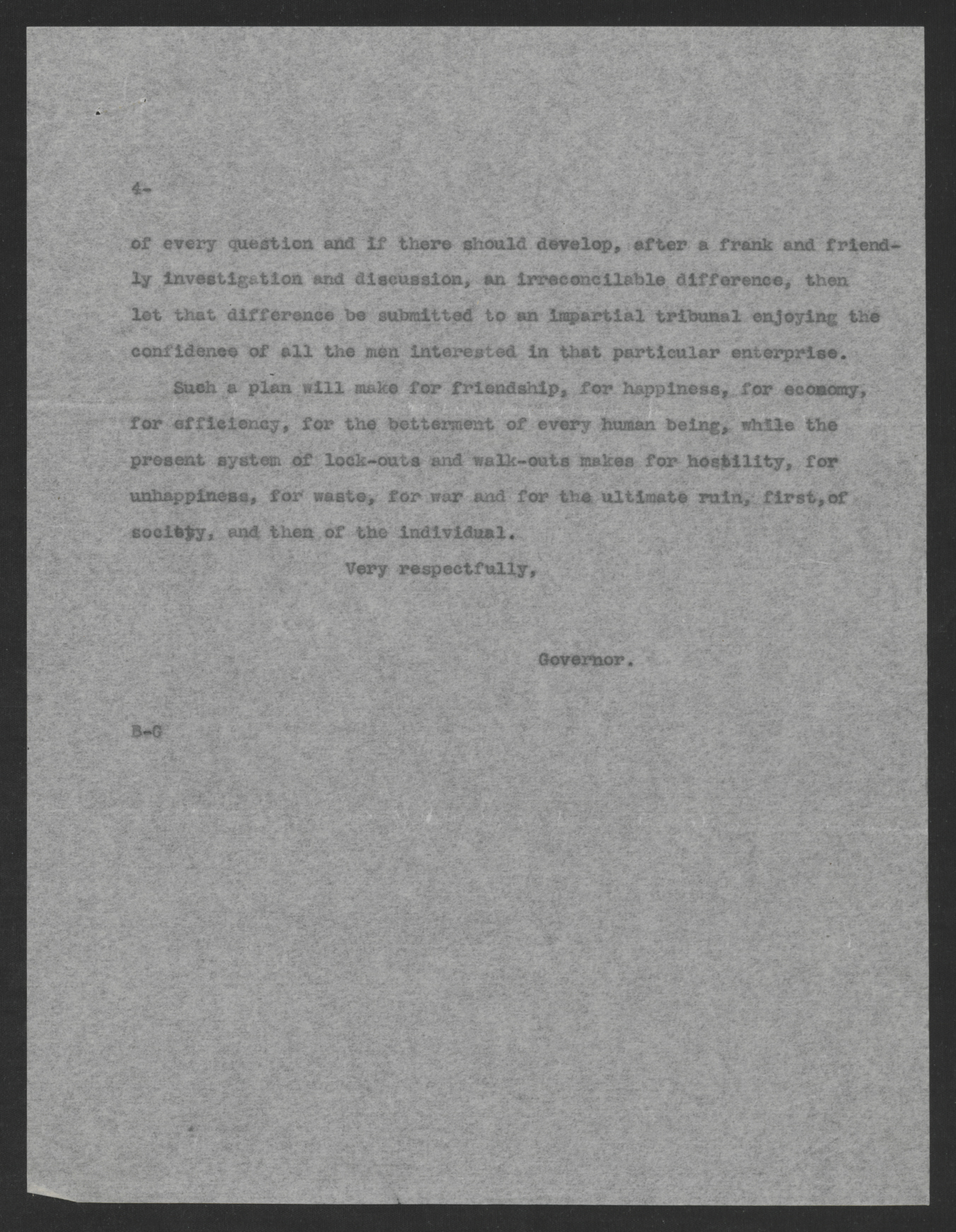June 28th, 1919.
Mr. J. E. S. Thorpe,
Supt. Tallassee Power Co.,
Badin, N.C.
My dear Sir:-
I am in receipt of a letter of June 25th from Mr. D. L. Goble, International Representative of the Brotherhood of Electrical Workers. A copy of this letter appeared in the News & Observer this morning, and I assume was sent to the News & Observer by Mr. Goble or some one representing him. I enclose you the clipping from the News & Observer which also contains a notice signed by you to the effect that the Tallassee Power Company would dismiss any one in its employ who joins a labor union.
I deem it my duty to call your attention to my statement of May 30th last dealing with the labor troubles in Charlotte. This statement appeared in all of the leading papers of the State at that time, and I assume that you are familiar with it. I now desire to reiterate and emphasize the position then taken.
Boiled down my position is that no employer has a moral right to discharge any man because he sees fit to join a labor union, and no laborer has a moral right to quit work because there works by his side a man who does not belong to a labor union.
There is no written law to prevent an employer from discharging a man because he joins a union, but such a discharge cannot stand the acid test of justice, and injustice can never score permanent success. Capital may win a single battle by such methods, but it can never win a war.
This is a free country and every man must be allowed to exercise his own free will without coercion or intimidation in joining or refusing to join any lawful organization.
The supreme law in this land is public opinion and that public opinion condemns and ought to comdemn the employer who refuses to give a man a job because he belongs to a union, and the same public opinion condemns and ought to condemn a man who quits or refuses to take a job because of the presence of some man who does not belong to a union.
But so long as neither side resorts to violence I am without legal power to interfere. If either an employer or laborer resorts to violence then it becomes my plain duty to call out the entire military and police force of the State to protect the life and property of our citizens and preserve peace and order. This duty I shall most certainly perform without fear and without favor whether violence be used by capital or by labor.
This is as much as I am called on to say or do as the Governor of North Carolina, but as a citizen of the State I am deeply concerned in its permanent peace and happiness. Therefore I am moved to say that unless there be enough of wisdom and of justice in our borders to devise and put into execution some plan for the settlement of industrial disputes other than by walk-outs and lock-outs, then our civilization is a failure and industrial chaos stares us in the face.
Labor, capital and executive ability are each a vital necessity to every industrial enterprise, and these must work in harmony with and not in hostility to each other if the business is to be conducted on bases of economy and efficiency. Unless the business be so conducted as to reduce waste to a minimum and to secure the largest outcome possible from a given amount of labor and of capital, then the business is doomed to failure and will soon be useless to both labor and capital.
The Great Teacher pointed out the folly of the present hostile attitude of capital and labor when he said, "A house divided against itself cannot stand." The philosophy of the Great Apostle to the Gentiles applies with striking emphasis to the industrial disputes of the hour. "The body is not one member, but many. The eye cannot say unto the hand I have no need of thee, nor again the head to the feet, I have no need of you. There should be no schism in the body, but the members should have the same care one for another, and whether one member suffer all the members suffer with it, or one member be honored all the members rejoice with it."
Labor and capital are parts of the same body and they must adjust and harmonize any seeming differences, for war in the body will prove fatal to all its members.
I therefore urge labor and capital in North Carolina to establish in every industrial enterprise an organization composed of all the men who have an interest in the permanent success of that enterprise. Let labor and capital be represented in the adjustment of every question and if there should develop, after a frank and friendly investigation and discussion, an irreconcilable difference, then let that difference be submitted to an impartial tribunal enjoying the confidence of all the men interested in that particular enterprise.
Such a plan will make for friendship, for happiness, for economy, for efficiency, for the betterment of every human being, while the present system of lock-outs and walk-outs makes for hostility, for unhappiness, for waste, for war and for the ultimate ruin, first, of society, and then of the individual.
Very respectfully,
Governor.
B-G








